St. Pancrace Chapel above Manosque
Cultural and historical site
20 min
view point
Site history
The inhabitants of Manosque fled around the year 1000 from the attacks of the Saracens to take refuge in the hills around the town. They therefore dispersed over several high sites such as at Mont d'Or and Montaigu. The large hill on which we are located is also one of these sites but without any traces of this temporary habitation remaining. The place was called Toutes Aures because it is exposed to all the winds. The situation is a little calmer now with all the trees on the long ridge.
The first indication of the existence of a village here dates back to 1149. However, at that date, the site was deserted by the inhabitants who returned to the valley. The church was abandoned, but nevertheless restored in 1422. The religious wars caused devastation in 1561.
No reproduction is permitted without the written consent of the author. (id7308)
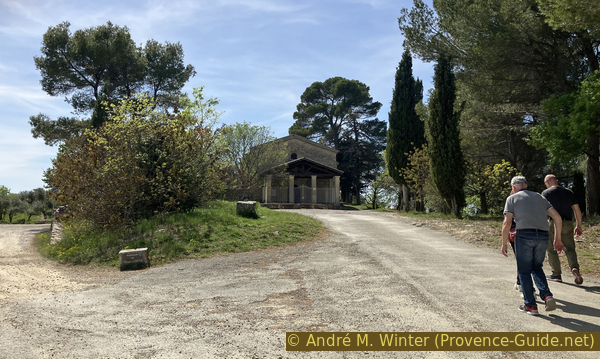
Ascent to St. Pancrace Chapel
Like other towns in Provence, Manosque was struck by the plague in 1631. The epidemic was not contained by quarantines, these methods would only be effective from the 18th century. The scourge lasts from August to November, killing a large part of the inhabitants.
They then made a vow to rebuild the church of Toutes Aures and to organize annual processions on 21 November. The sanctuary was rebuilt between 1634 and 1637, but the work was not completed until 1665. The site first dedicated to Saint Sebastian was dedicated in 1740 to Saint Pancrace (San Brancaï in Provençal) by the Carmelites who took care of worship. A first wooden statue of the saint was installed in the chapel in 1725.
The Revolution sacked the site, but pilgrimages resumed as soon as 1795 and a new bust of the saint (the current one) was erected in 1796.
The chapel has been public good since 1921, the last renovations date back to 2005.
No reproduction is permitted without the written consent of the author. (id7309)
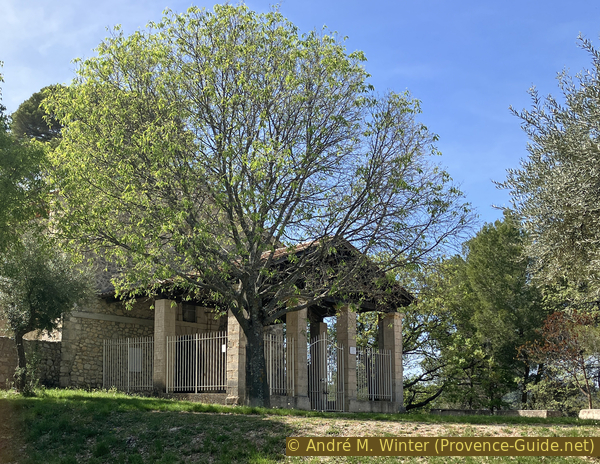
Porch of St. Pancrace Chapel
Description
The chapel is Romanesque in style. The very long building has an entrance facing north-east fronted by an 18th century portal. The classic porch in Provence was installed in 1675. To the west is attached a hermitage whose western wall forms a false apse oriented perfectly towards the west.
No opening allows you to see the interior. It is only open at Easter and during the romérages (processions) of 12 May, the feast of St. Pancras. The nave is baroque and there are several paintings with naive and religious themes.
No reproduction is permitted without the written consent of the author. (id7311)
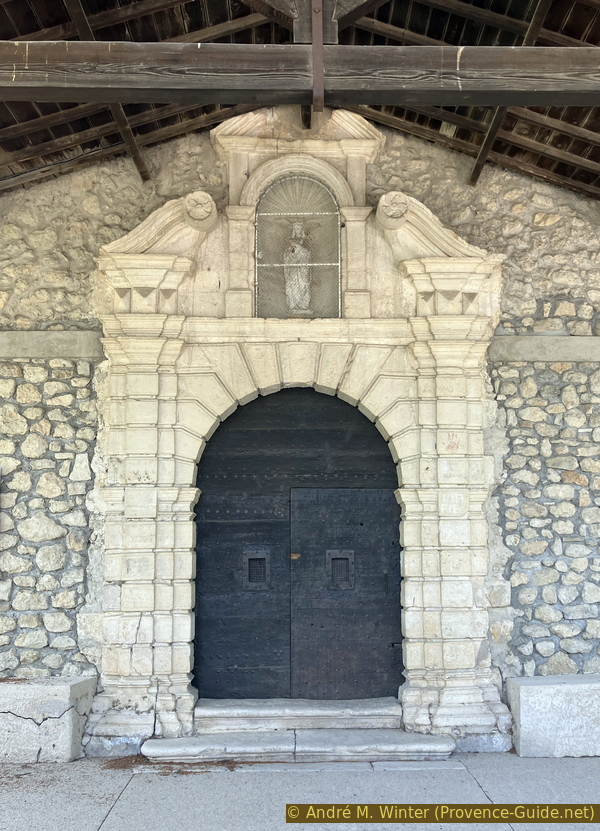
Portal of St. Pancrace Chapel
Access by public transport
A little walking is necessary when coming by public transport. Manosque is well served by the TER PACA (only french) network. From the station, take a bus from line 112 of the local network Trans'Agglo (only french) in the direction of Thomassine to the Collège Jean Giono stop.
Walk slightly uphill along Boulevard des Varzelles towards the north. Then a little zigzag: at the roundabout turn left into Montée de Toutes Aures. Then right into Rue du Fenouil. Left on Rue des Cades to come back to Montée de Toutes Aures, the slope of which increases as it goes up. It takes about 20 minutes to walk up from Collège Jean Giono.
Access by car
From all directions, you must first reach Manosque and cross the town, it gets jammed at all hours. Follow Centre-Ville and Toutes Directions. Later Volx and Digne. Then left towards the Centre car parks. Arriving at a small roundabout, turn left towards Apt. Also towards Apt at the next roundabout. Then follow Toutes Directions and at the next roundabout finally towards Chapelle Toutes Aures. Follow this road with two bends, then go straight up towards the chapel.
Parking site
There are several small parking lots for two or three vehicles further down in the shade. We also find other ones higher up and even behind the chapel. It is better to stay at the bottom and walk a little to go up.
No reproduction is permitted without the written consent of the author. (id7313)
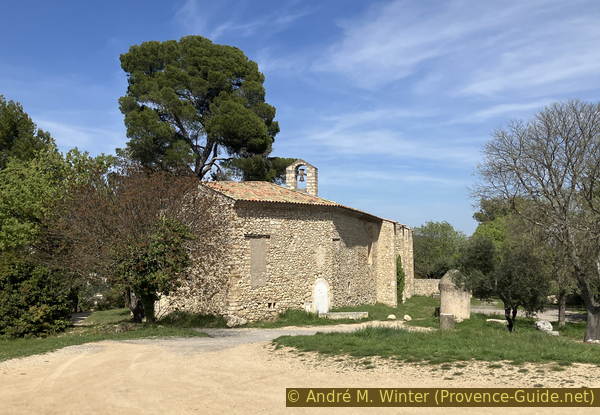
St. Pancrace Chapel seen from above
You can walk up past the chapel and a water reservoir. The ridge continues towards the west, offering various views of the Durance Valley and the eastern part of the Luberon.
No reproduction is permitted without the written consent of the author. (id7312)
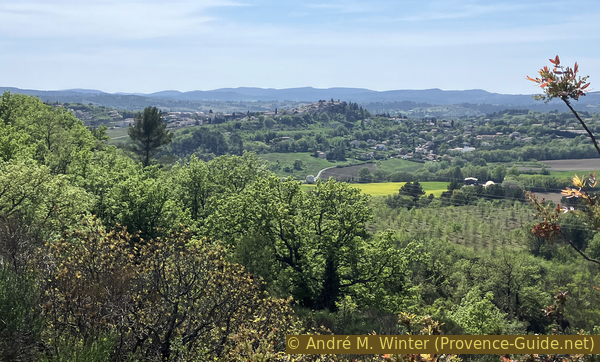
View towards Pierrevert
No reproduction is permitted without the written consent of the author. (id7314)
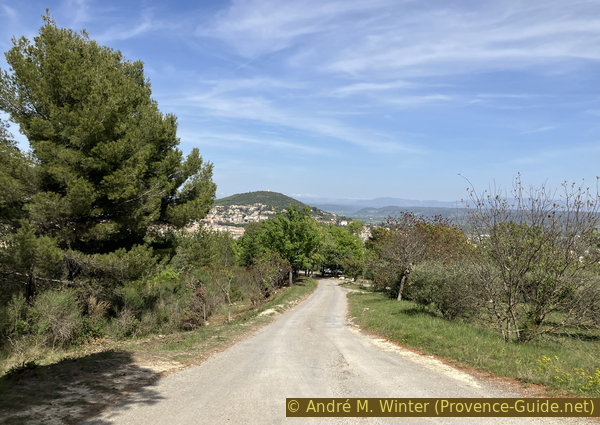
Road to St. Pancrace Chapel seen from above
No reproduction is permitted without the written consent of the author. (id7310)
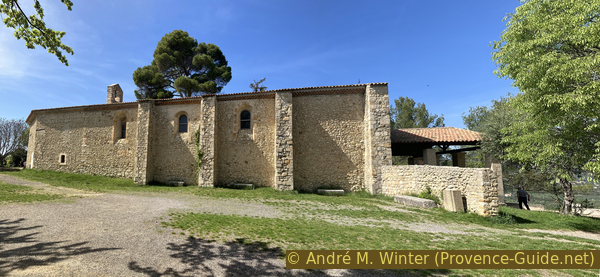
Surprising length of St. Pancrace Chapel